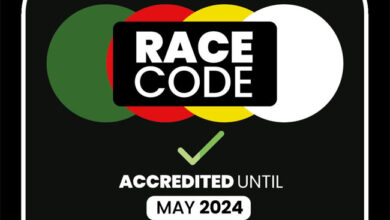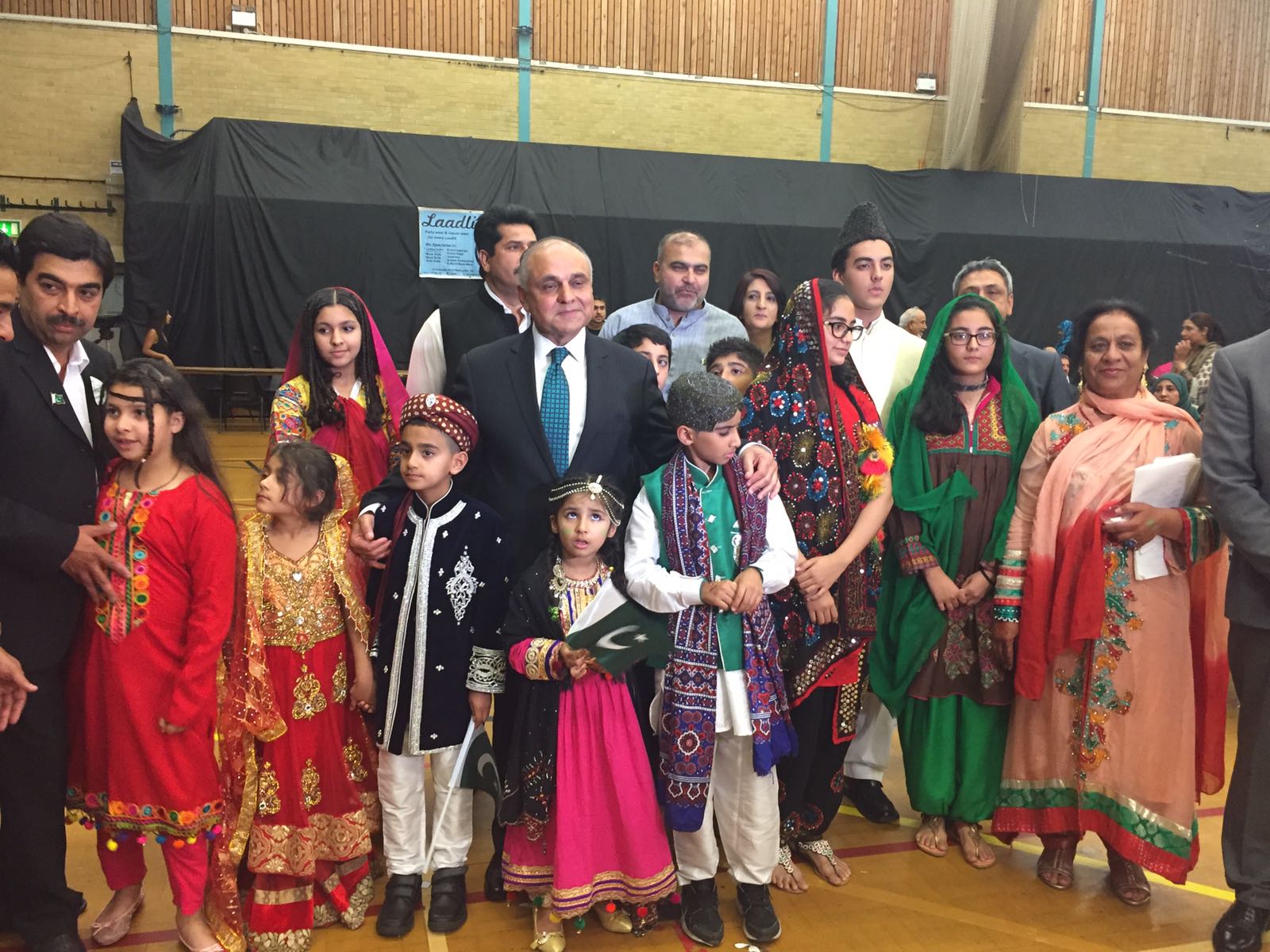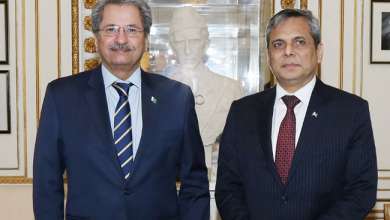UK
Kashmir Seminar at the House of Lords
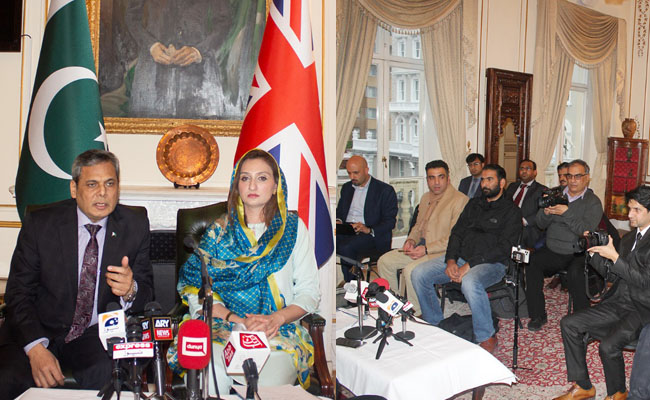
Speakers condemn Indian atrocities in Kashmir, term human rights violations an international issue
As the Indian siege of Occupied Kashmir entered 170 th day, a seminar was held in the House of Lords on 21 January 2020 to discuss human rights abuses of Kashmiris by the Indian occupation forces.
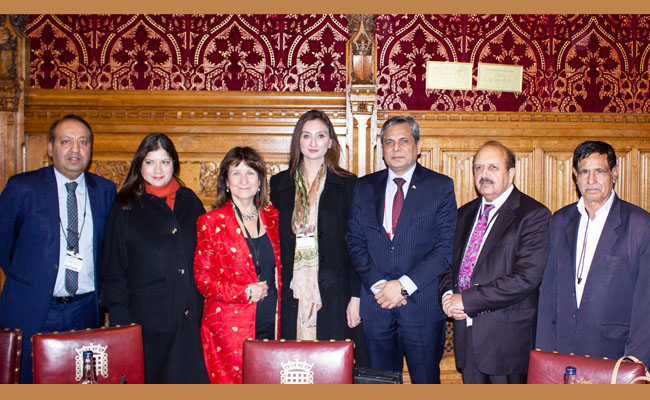
Baroness Helena Kennedy QC, Director of the International Bar Association’s Human Rights Institute hosted the seminar. Baroness Kennedy opened the floor with her introductory remarks for deliberations by the guest speakers who were invited to share their thoughts. Parliamentary Secretary, Law and Justice, Barrister Maleeka Bukhari, British Parliamentarians namely Baroness Sayeeda Warsi, Lord Qurban Hussain, Steve Baker MP, Mark Eastwood MP, Imran Hussain MP and Schona Jolly QC shared their concerns over the prevailing humanitarian crisis in occupied Kashmir.
High Commissioner Nafees Zakaria took the floor to brief the audience on the issue of Kashmir, the human rights violations and atrocities continuing since last seven decades, the security threat to the regional peace and stability that the dispute of Kashmir poses and the situation at Loc.
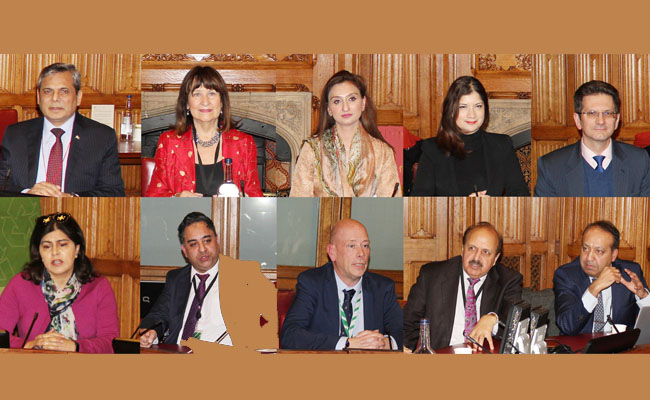
The High Commissioner said that Kashmir is an internationally recognized dispute with unimplemented UN Security Council resolutions on it. He invited the attention of the international community towards the plight of Kashmiri people living under crippling restrictions and military siege since Aug 5, 2019. He said blackout of media, internet and other means of communication by the Indian government is making it impossible for the outside world to know the extent of loss of human lives due to shortages of food and medicines.
Mr Zakaria emphasized to the audience to read the documented accounts of human rights abuses by the organisations of international repute and INGOs such as Amnesty International, Human Rights Watch, IPTK, Association of Disappeared Persons (APDP), etc. He quoted “Muslim Women’s Forum” report saying that around 13,000 Kashmiri youth have been arrested since 05 August 2019 and their welfare and whereabouts were unknown. Similarly, he cited International People’s Tribunal Report entitled, “Buried Evidence” on unnamed and unmarked mass graves.
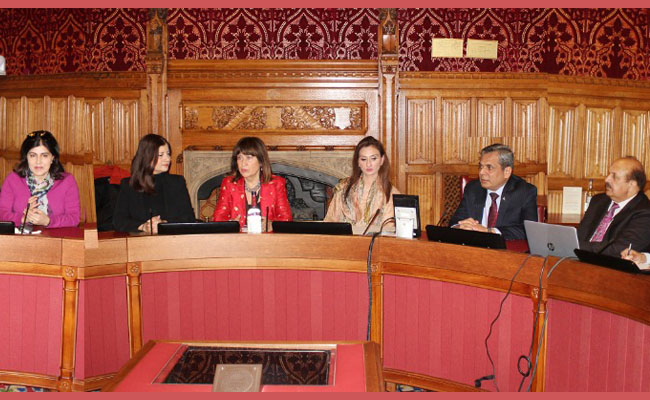
The High Commissioner also apprised the audience about continuous ceasefire violations by Indian forces resulting into deaths and injuries of the civilians in AJK and risks to the regional security and beyond. He invited the attention of the audience towards systematic demographic change that India was bringing to the Jammu and Kashmir territories under its occupation. The High Commissioner highlighted that in addition to perpetual genocide, mass killings and enforced expulsions, India has taken a number of measures to change the demography which the international community should take notice of.
Barrister Maleeka Bukhari said that systematic abuse of human rights of the Kashmiris for the last seven decades is not an internal matter of India but it is in contravention of the international law as well as Indian constitution. She termed Kashmir to be the largest open air prison on the earth. Maleeka said Indian occupation forces are committing the worst sexual violence in IOK. She stressed on the need of sending independent observers to IOK. She called upon the UK Government to take a stand on the basis of principles and urge India to stop human rights abuses in Kashmir.
Condemning the Indian atrocities in Occupied Kashmir, the speakers said human rights abuses were not an internal issue; rather it is an international issue, and therefore, the UN and international community must play their role to end the ongoing humanitarian crisis in Jammu & Kashmir territories under Indian siege. They also underlined the need to send a fact finding mission to IOK.
Speaking about documented accounts of mass blindings by use of pallet guns, mass rapes, mass graves and other manifestations of the collective punishment of the Kashmiris, the speakers said Indian actions in IOK remind the strategy of Second World War.
They maintained that being a signatory of the International Covenant on Civil and Political Rights (ICCPR), India cannot do arbitrary detentions. They said it is deplorable that due to the ongoing siege, the courts are not working and cases of habeas corpus cannot be pursued which adds to sufferings of the detainees and their families. It was apprised that on international level, UN has issued serious statements to show concern on impunity enjoyed by Indian occupation forces. It was noted that UN Human Rights Commissioner asked India for unconditional access to Kashmir and an inquiry into human rights abuses which India is still denying. On domestic level, although the lawyers took the case of Kashmir to the Supreme Court of India, yet the Supreme Court slowed down the case and the judgement on internet shut down was deeply disturbing, it was expressed.
Most of the speakers said British Parliament needs to widen the agenda and discuss Kashmir as what is happening there is totally intolerable. They said religious nationalism in India is alarming. Referring to the large number of Kashmiris in the UK and their anguish in the wake of India’s illegal unilateral measures since 05 August 2019, they said UK’s foreign policy has not been responsive to the issues of Diaspora population.
The speakers noted that it is important to preserve human rights until political disputes are resolved. They rejected Indian justification of violation of human rights and atrocities like disappearances, extra-judicial killings and sexual violence by terming the Kashmir dispute an internal matter. They also said UK has a responsibility towards resolution of the Kashmir dispute.
The participants of the event unanimously agreed that the issue of human rights violations in IOK would be raised on all available forums and human rights bodies.
Later, the Parliamentary Secretary and the High Commissioner held a press briefing to inform the media about the event and the outcome at the High Commission on 22 January 2020.



